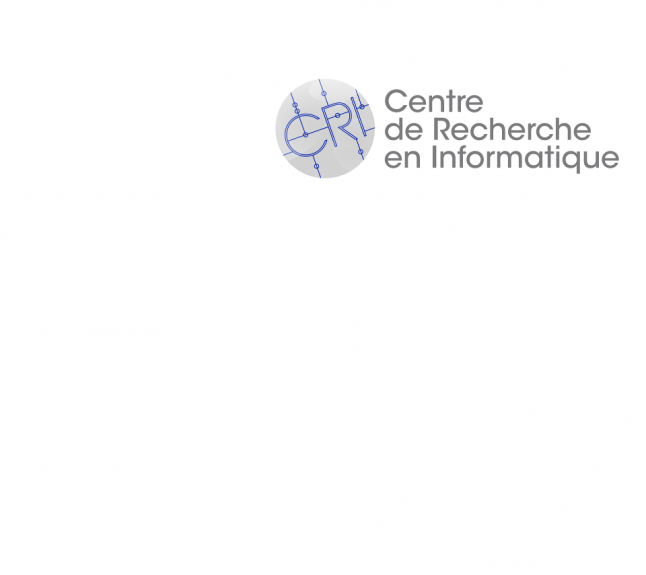
Séminaire de Recherche du CRI
Presentation 1
Title
Les Dix'Fi de Thymio
Presenters
Grenet Rebecca, Schmit Madeleine, Namet Michael, Nakarmi Richard sous la supervision de Camille Salinesi
Abstract
Présentation d'un projet universitaire réalisé par quatre étudiants de licence 3 MIAGE parcours classique : site web pédagogique "Les Dix'Fi de Thymio" avec le robot éducatif Thymio. Notre objectif principal est de permettre l’apprentissage du code à des élèves de 8 à 13 ans, à travers un aspect ludique durant tout une semaine appelée la semaine des Dix’Fi de Thymio.
Bio
Nous sommes quatre étudiants venant de L2 MIASHS. L’année dernière, nous avons fait le choix de rejoindre le parcours MIAGE, de par notre intérêt pour l’informatique. En effet, nous souhaiterions à l’aide de cette formation, nous épanouir professionnellement, notamment dans le domaine de la programmation informatique.
References
- Site du projet : https://thymio.tech/
- Site Thymio : https://www.thymio.org/fr/
- Site Scratch : https://scratch.mit.edu/
Presentation 2
Title
Coffee: a framework supporting expressive variability modeling and flexible automated analysis
Presenter
Ángela Villota, under the supervision of Camille Salinesi and Raul Mazo
Abstract
The Coffee Framework is a constraint-based framework that supports variability modeling and analysis about variability models, two of the main tasks in the management of variability-intensive systems. This framework is proposed to ease the interoperability between variability management tools and the strong dependencies in the framework supporting automated analysis of variability models. The Coffee framework addresses these problems by modifying the transformation framework and introducing two intermediate languages. This presentation presents an overlook of the framework and its two main contributions:The High-Level Variability Language, an expressive variability modeling language, and The three-step transformation framework for supporting multi-language and multi-solver automated variability analysis.
Bio
Ángela Villota is an Auxiliar professor at Universidad Icesi (Cali, Colombia) and a Ph.D. student at Université Paris 1, Pantheon- Sorbonne. She has a BSc. in Computer Science and a Masters's degree in Engineering applied to Computer Science at Universidad del Valle (Cali- Colombia). She has worked in research projects involving: Constraint Programming, Process Calculi, Fundamentals of Programming Languages, Declarative Programming Languages, Logics, Data Structures, and Algorithms. Currently, she works on the application of Constraint Programming and Modeling Languages on Product Line Engineering.
Latest publications
- Ángela Villota, Raúl Mazo, Camille Salinesi: The high-level variability language: an ontological approach. SPLC (B) 2019: 84:1-84:8
- José Luí Barros Justo, Luisa Rincón, Ángela Villota, Wesley K. G. Assunção:
- Adopting a software product line engineering approach in industrial development contexts: A protocol for a systematic literature review. CoRR abs/1904.01861 (2019)
- Ángela Villota, Raúl Mazo, Camille Salinesi:
- On the Ontological Expressiveness of the High-Level Constraint Language for Product Line Specification. SAM 2018: 46-66 (2018)